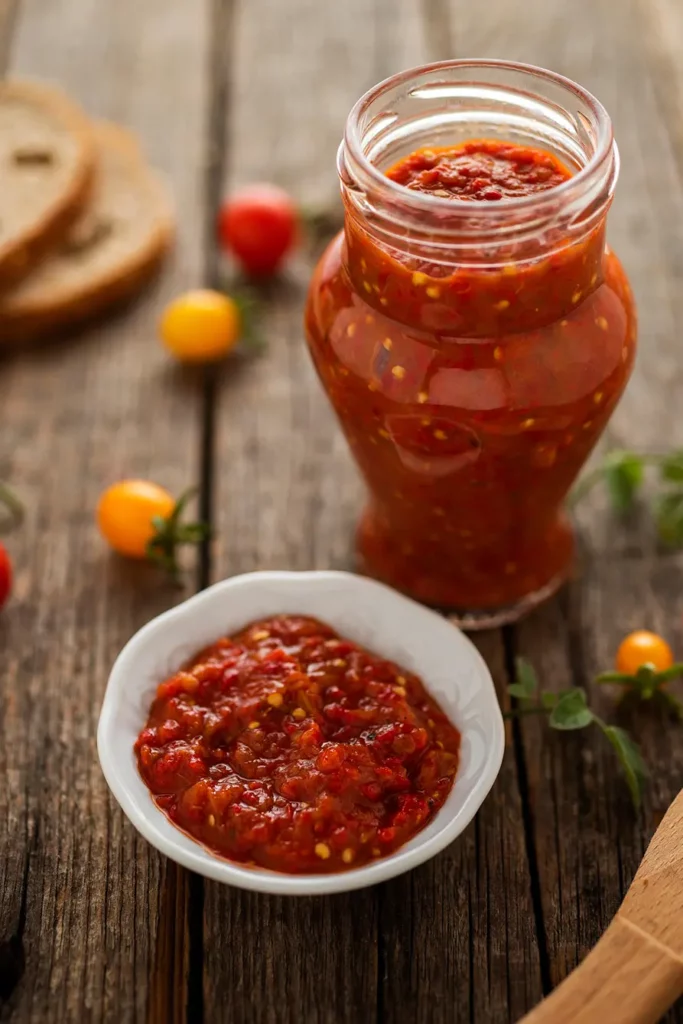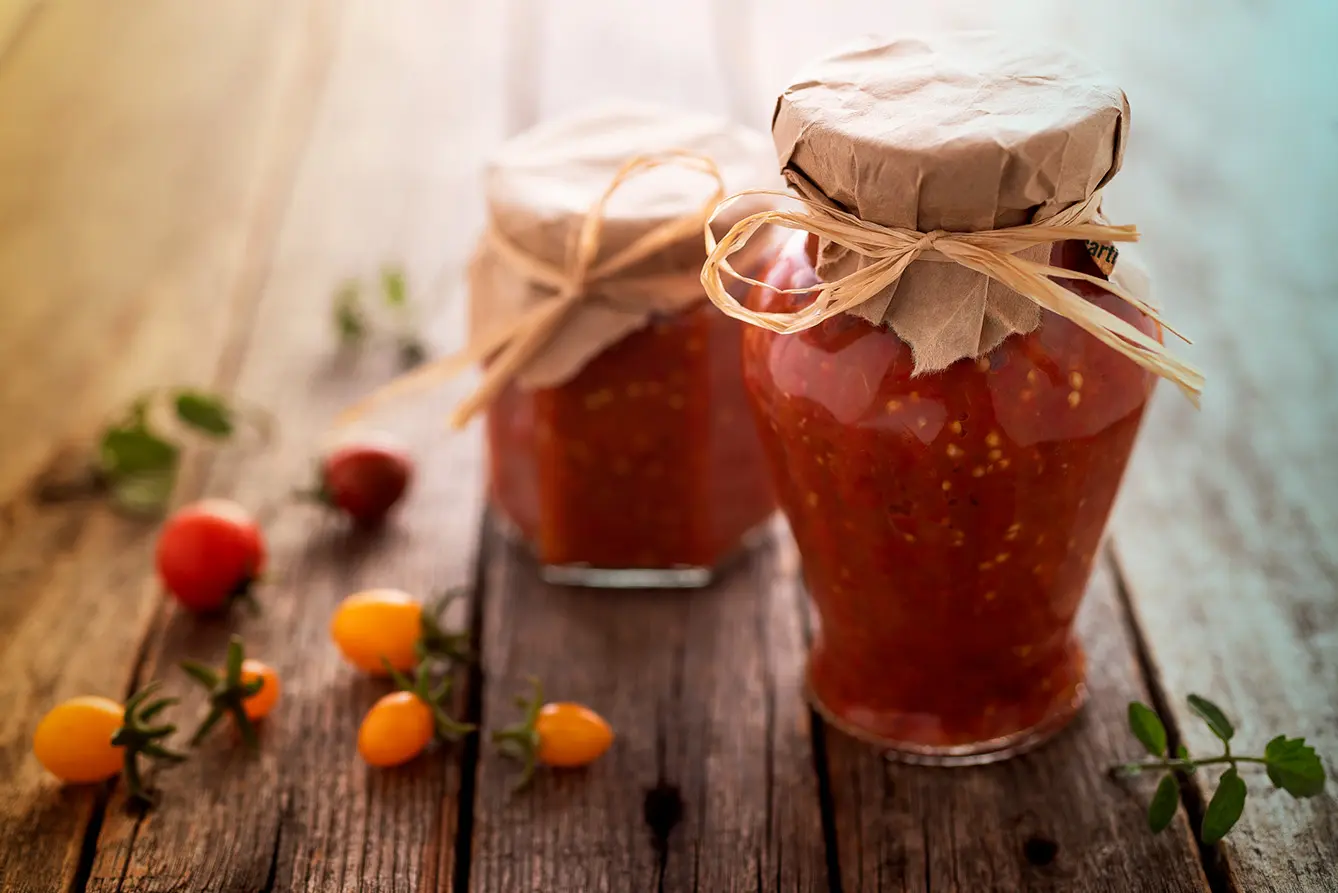The Sofia Airport might not be brimming with shopping opportunities. Still, before a recent flight there, I found one item that most Bulgarians traveling abroad might need on a prominent display: Jars with ljutenica, the all-Bulgarian spicy tomato-and-pepper spread that Bulgarians believe goes with everything.
Prepared in late summer when the key ingredients – tomatoes and peppers – are still in abundance, this chutney is a staple in every Bulgarian pantry, prepared by a caring grandmother or bought in the nearest supermarket. It’s simply summer in a jar.
Ljutenica and ajvar: same but different
With Balkan countries sharing a lot of dishes with their national cousins, courtesy of immense Ottoman culinary influence, it’s a challenge to point to the one dish that cannot be tried just across the border. And yet, this spicy dip – its name in Bulgarian means exactly that, spicy – is a leading contester when it comes to Bulgarian culinary pride.

However, a similar dip, called ajvar, can be found in Croatia, Serbia, and North Macedonia, a rare example of limited culinary presence in a part of Europe which shares pretty much everything else.
The arrival of ljutenica to Bulgaria is somewhat shrouded by mystery. In her research, “The deep Meaning of Ljutenica,” Vesela Nikolova, a long-time researcher of culinary traditions in Bulgaria, points out that the earliest recipe she could find is from a cookbook published back in 1937. That recipe calls for tomatoes, peppers, and onions and then mixing them in an oven. But for generations of Bulgarians, the chutney is being prepared in the biggest pot one can find on an open wood fire.
Growing up in Sofia in the 1980s, Daniel Levi also wasn’t deprived of access to a homemade ljutenica. Now, living in Israel, this is the one item that he associates the most with the Bulgarian cuisine he and his family left behind some 25 years ago. “I love ljutenica, it’s really one of the things I miss most from Bulgaria,” Daniel tells 3Seas Europe. “I spent every summer with my grandparents, and they would stock the fridge with jars. My favorite chutney is finely grounded, which is like a homogeneous paste, and you can’t see any pieces of peppers or tomatoes. It goes with everything. In the morning on a slice, at lunch with meatballs, the kofte, and even with pizza.”
How to make ljutenica at home
To prepare this spread, you need red peppers, tomatoes, onions, carrots, and spices, such as cumin, chili, and garlic. The peppers are roasted, peeled, and finely chopped. The tomatoes are grated. Then, the mixture, already containing spices, is fried with oil. The consistency is considered good once, when stirring with a wooden spoon, a trace remains on the bottom of the pan.
In Bulgaria, several companies are among the country’s leading ljutenica producers. Dimitar Angelinov, the owner of the canning company “Deroni,” which has been operating since 1991, credits the company’s closed production cycle for its sales. “We grow our own seedlings and vegetables and process them on the day of harvest,” he tells 3Seas Europe.
In some areas of Bulgaria, roasted green peppers and tomatoes are used. Other ljutenica lovers in southern Bulgaria suggest adding green peppers, potatoes, and cauliflower to the red peppers and tomatoes. A grated apple can also be added. In the north of the country, however, the spices are somewhat less present.
Some villages even hold Ljutenica festivals to declare their appreciation for the traditional chutney, which are a celebration of all things spicy in a jar. Since 2009, the Kurtovo Konare Fest in southern Bulgaria has been awarding the producers of the biggest tomatoes and peppers, and the best homemade preserves. The festival also gives an award for the most unusual pot for making ljutenica.
On a recent trip to Bulgaria, Daniel Levi, as always, made sure he packed a few jars of his beloved ljutenica. “I don’t leave Bulgaria without it. Once, while I was on a business trip in the US for a month with some of my Bulgarian colleagues, we drove in a major blizzard for hundreds of miles to get to the Bulgarian store in Chicago. It’s clear what I bought.”







